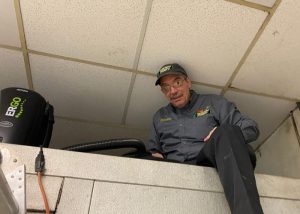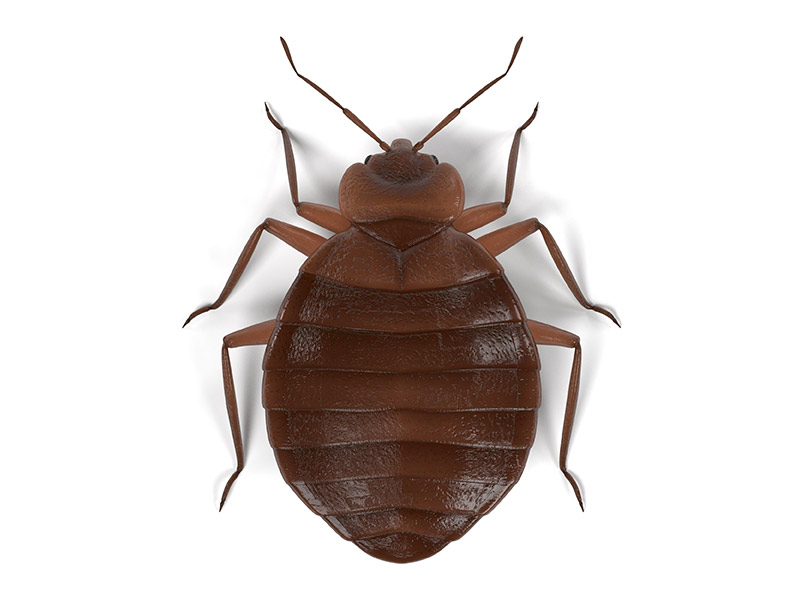Pest Control in Port Charlotte solutions for household and office properties.
Pest Control in Port Charlotte solutions for household and office properties.
Blog Article
Discovering Ingenious Strategies and Products for Effective Pest Control
The landscape of insect control is evolving, marked by the development of ingenious techniques and products made to improve efficiency and sustainability. From smart traps equipped with sophisticated tracking systems to organic techniques that utilize all-natural killers, these innovations provide a standard change in just how we approach pest monitoring.
Smart Traps and Keeping Track Of Solutions
Exactly how can modern innovation improve parasite management? One significant improvement is the development of wise catches and monitoring systems, which provide real-time data and analytics for efficient parasite control. These systems make use of sensors and cordless innovation to detect bug activity, notifying building managers and insect control experts to invasions before they escalate.
Smart traps are geared up with functions such as lure terminals that bring in bugs and capture them successfully. These traps can be monitored remotely, permitting for timely interventions and minimizing the demand for substantial chemical applications. In addition, the combination of maker discovering formulas makes it possible for these systems to separate between target bugs and non-target species, enhancing the precision of insect control procedures.
In addition, the information collected from wise traps can be analyzed to identify patterns in insect habits and environmental variables adding to invasions (Pest Control in Port Charlotte). This details is very useful for creating targeted insect management strategies tailored to certain environments. By accepting clever traps and monitoring systems, insect control professionals can boost their operational performance and lower the environmental effect of parasite monitoring, eventually resulting in more secure and a lot more sustainable methods in the market
Organic Parasite Control Techniques
Using natural killers and bloodsuckers, biological insect control approaches use an eco-friendly alternative to chemical therapies. This strategy involves the intro or improvement of specific organisms that can normally manage insect populaces, consequently minimizing reliance on artificial chemicals. Typical instances include using ladybugs to control aphid infestations and parasitical wasps to target caterpillars.

Organic control can be categorized into three major methods: classic, augmentative, and conservation. Timeless biological control includes importing natural enemies from the pest's native habitat, while augmentative control entails raising the population of existing all-natural adversaries with launches. Preservation methods concentrate on creating problems that support these advantageous microorganisms in the ecological community.
The effectiveness of biological parasite control rests on recognizing the intricate communications within ecological communities. It commonly requires a comprehensive analysis of insect characteristics and the life cycles of both the bugs and their natural enemies. While organic methods may not supply prompt outcomes like chemical options, they add to long-lasting bug monitoring and community health and wellness. As recognition of environmental concerns expands, biological insect control approaches are progressively recognized for their lasting function in incorporated parasite management programs.
Eco-Friendly Chemical Alternatives
Eco-friendly chemical options supply check my blog a feasible remedy for insect administration that reduces ecological effect while properly regulating bug populations. These options are stemmed from all-natural sources and are thoroughly developed to target particular bugs without hurting valuable microorganisms, making them an essential element of sustainable bug control techniques.
Amongst one of the most reliable eco-friendly alternatives are plant-based insecticides, such as neem oil and pyrethrin, which are originated from the seeds and flowers of numerous plants. These materials disrupt the life cycles of pests, decreasing their populaces without the harmful results related to traditional chemicals - Pest Control in Port Charlotte. In addition, vital oils like pepper mint and clove oil show repellent residential properties, better enhancing their utility in parasite monitoring

Additionally, environmentally friendly chemical options typically damage down extra swiftly in the setting, lowering the threat of soil and water contamination. This particular aligns with the enhancing consumer need for lasting practices in farming and city pest control. As research study Extra resources remains to advancement, the advancement of innovative environment-friendly formulations will additionally improve effectiveness and expand application areas, allowing pest management professionals to take on greener, extra accountable approaches in their methods while protecting human wellness and the environment.
Scent Disruption Methods
One more innovative method in sustainable bug administration is the use of pheromone disruption strategies. These approaches make use of the all-natural chemical signals, or scents, that insects utilize for communication, specifically in mating behaviors. By interrupting these signals, parasite populations can be properly handled without resorting to unsafe chemicals.
Scent traps are commonly utilized in this approach. These traps make use of synthetic variations of insect scents to entice male pests, thereby lowering their capability to find females and duplicate. Over time, this can bring about a considerable decline in pest populations. In addition, the release of repellent pheromones can produce complication amongst insects, better hindering their breeding procedures - Pest Control in Port Charlotte.

Integrated Insect Management Strategies
Reliable bug control commonly needs a thorough method, and Integrated Bug Administration (IPM) techniques give a structure for attaining this objective. IPM integrates numerous monitoring techniques to reduce bug populaces while reducing dependence on chemical pesticides. This complex approach starts with complete tracking and identification of pests, enabling targeted treatments based upon particular parasite pressures.
Social techniques, such as plant turning and cleanliness, play an important duty in protecting against bug facility. Biological controls, consisting of natural predators and parasitoids, are employed to keep pest populaces at workable degrees. When essential, selective chemical treatments are used, stressing reduced poisoning to non-target varieties and the environment.
Additionally, education and outreach are integral components of IPM, advertising understanding amongst stakeholders about lasting techniques and pest life cycles. The flexibility of IPM permits experts to respond properly to changing parasite dynamics and ecological conditions. By using this all natural method, IPM not just boosts insect control performance but likewise contributes to long-term eco-friendly equilibrium. Inevitably, Integrated Pest Management represents a forward-thinking service that straightens agricultural efficiency with environmental stewardship, making it important in modern insect control approaches.

Conclusion
To conclude, the assimilation of innovative methods and products for reliable parasite control stands for a significant advancement in sustainable bug administration. Smart traps and checking systems, organic insect control methods, environment-friendly chemical alternatives, and pheromone interruption techniques collectively improve the performance of parasite management methods. By adopting these strategies, the reliance on conventional chemicals can be reduced, advertising environmental health while making certain efficient parasite control. Continued research and growth in these areas will certainly further improve parasite management practices.
Report this page